Dentsu teams up with startups and a city government to jointly create a new project
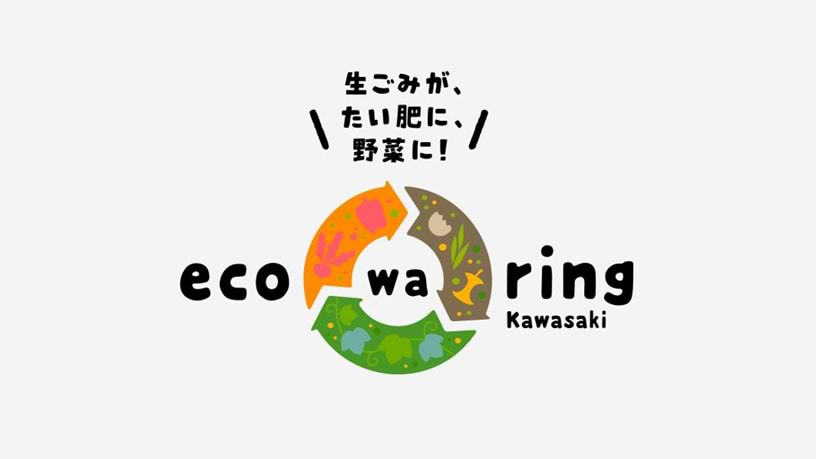
Awareness of the UN Sustainable Development Goals (SDGs) has been growing in Japan, but finding ways to involve large numbers of people in environmental initiatives is not always easy. With that in mind, Dentsu has partnered with Kawasaki City and two startups—Local Food Cycling Co., Ltd. and Trustridge, Inc.—to establish Eco-wa-ring Kawasaki.
Dentsu designed the project to enable large numbers of citizens, together with companies, to take part in environmental activities. In this article, I look at Dentsu’s ideas behind the project and environmental activities that have been carried as a result .
Project background
We at Dentsu decided to start the project because we have a strong interest in, and are passionate about, the SDGs and environmental activities.
Nowadays, integrating the SDGs in corporate initiatives has become standard practice in Japan. Likewise, this approach has become essential for the design of customer experiences and the development of products and services. We thus wanted to devise a framework that would allow companies and consumers to jointly participate in environment-related activities. We also believed that such a framework might lead to the creation of new business for the companies involved, including Dentsu.
Based on these ideas, we drew up a business plan that required the use of composting to create sustainable food cycles.
Overview
Composting to create food cycles
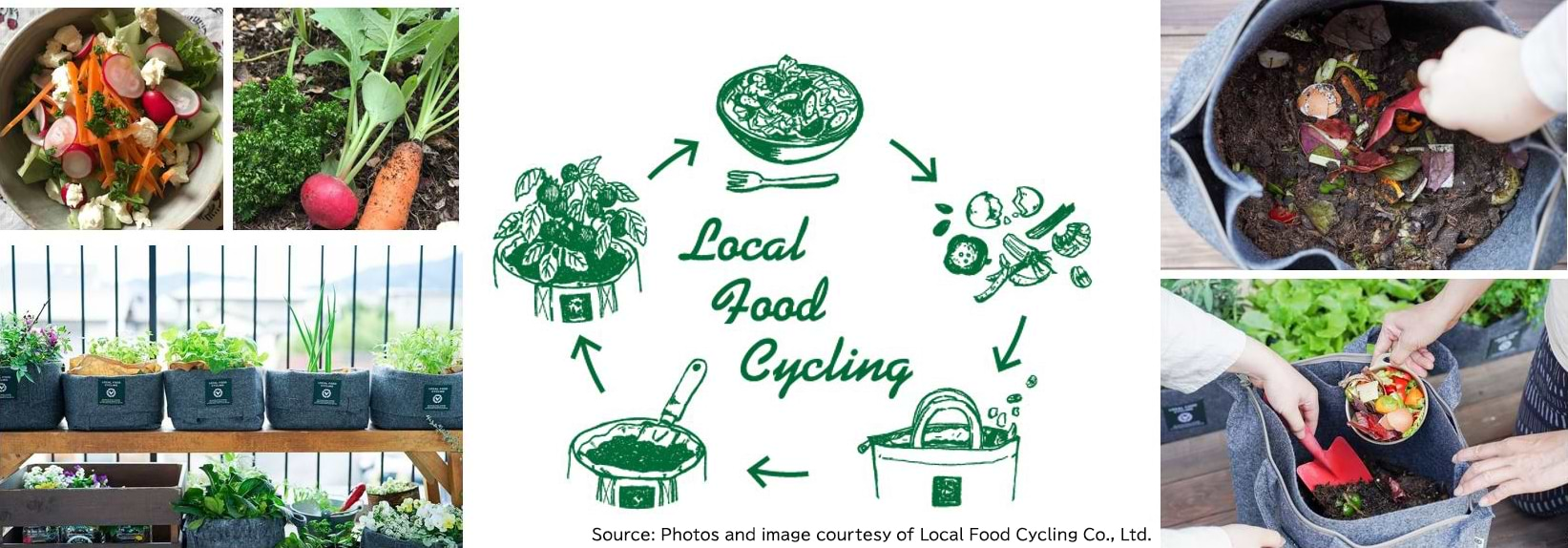
We wanted to provide compost containers that could be used to compost household organic waste, which would then serve as a fertilizer to grow vegetables. We envisioned how providing the containers in urban centers would enable many residents to become environmentally active on a regular basis, and together maintain a food cycle.
We focused on how city residents, companies, and local governments might work together on the food cycle to improve urban living spaces. We designed the project following numerous discussions involving the Dentsu team, as well as Kawasaki City and the two startups.
Ultimately, we devised two types of food cycles, as described below.
Self-supporting food cycle
According to the first model, participants bring the compost they make at home to community gardens set up in areas provided by companies.
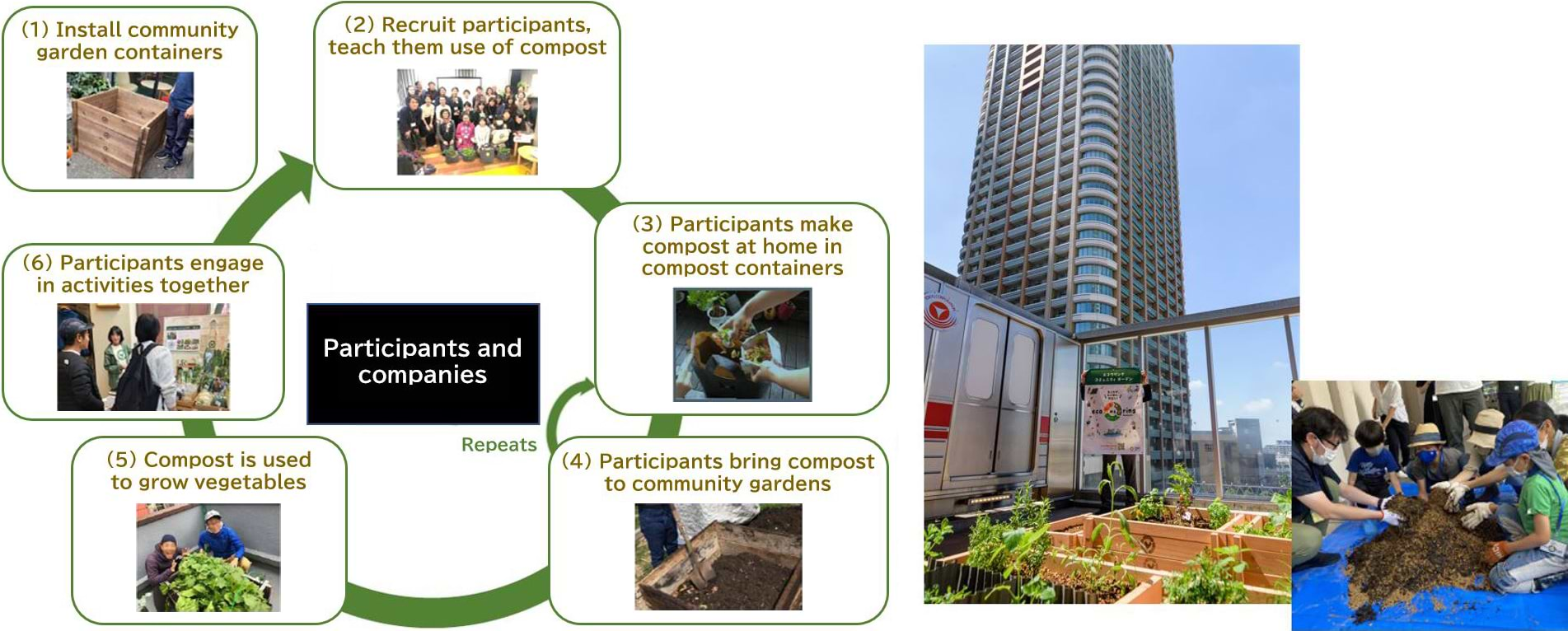
In this self-supporting food cycle, local residents participating in the project make compost at home in the compost containers supplied. They take the compost to a community garden set up in an area provided by the owner of a residential building or a company building. The community garden users tend the garden together, using the compost to grow vegetables for everyone to eat.
Cooperative food cycle
Participants offer compost they make at home to local farmers
The second food cycle is based on a cooperative model. Participants offer the compost they make at home to local farmers, who use it to grow vegetables that they sell back to the participants. This creates a community-driven cycle of local production for local consumption.
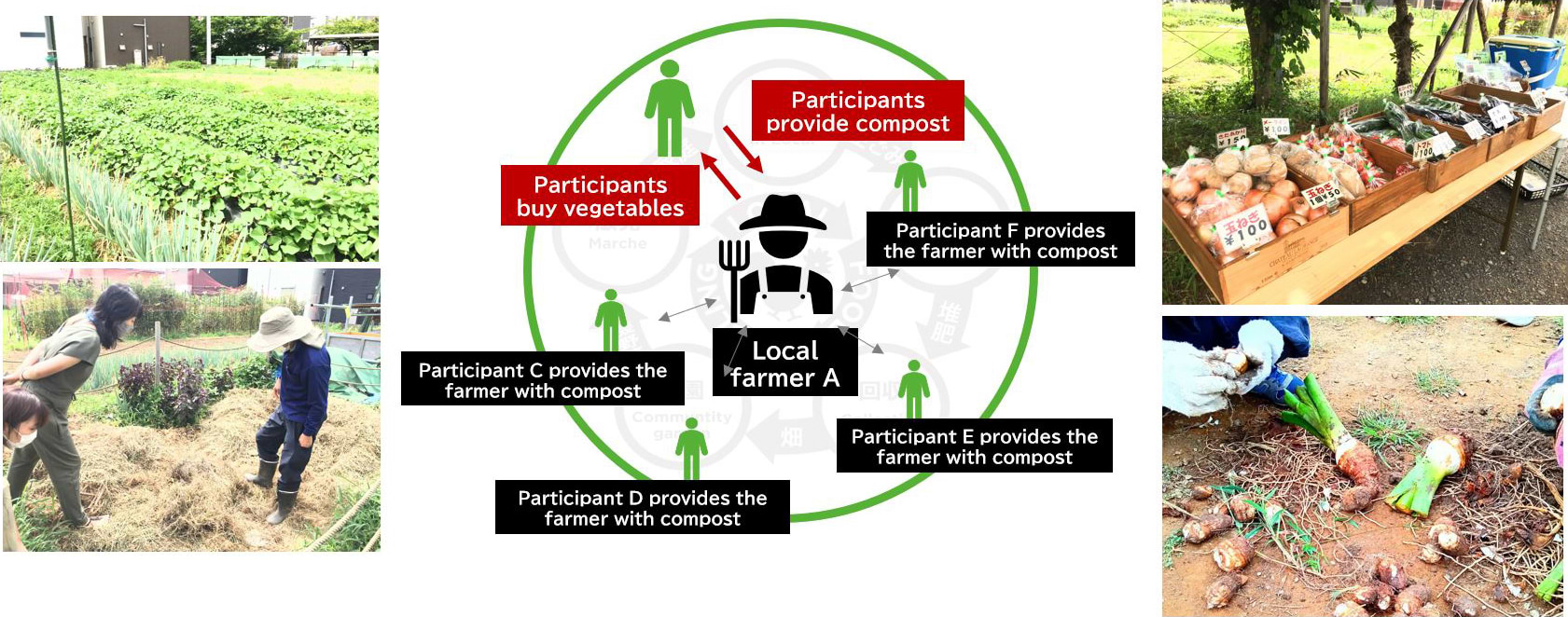
For a community-driven cooperative project such as this, we believed that partnering with a local government would be best. The officials could handle matters they normally administered, facilitate participation by local residents and companies, and verify compliance with the relevant laws and regulations.
Eco-wa-ring launched in 2021
After formulating the concept for the project, we began searching for partners and decided to collaborate with Kawasaki City. Its government had been trying to reduce the amount of garbage generated and save resources, particularly while engaging with the city’s younger residents. City officials also appreciated the fact that the project’s goals were aligned with the direction Japan was taking.
The city agreed to become a partner, recognizing that the project* would give Kawasaki a chance, as a model city, to help Japan achieve the SDGs. It could also encourage similar efforts in other regions of the country.
It was only later in 2021, when the two startups had joined the project, that we branded it as Eco-wa-ring Kawasaki.
| * | The city of Kawasaki launched the project in 2021 as a one-year initiative and was soon recognized for its efforts. The Ministry of the Environment selected the project as a model for reducing food loss and promoting food-waste recycling. |
|---|
Roles of project partners
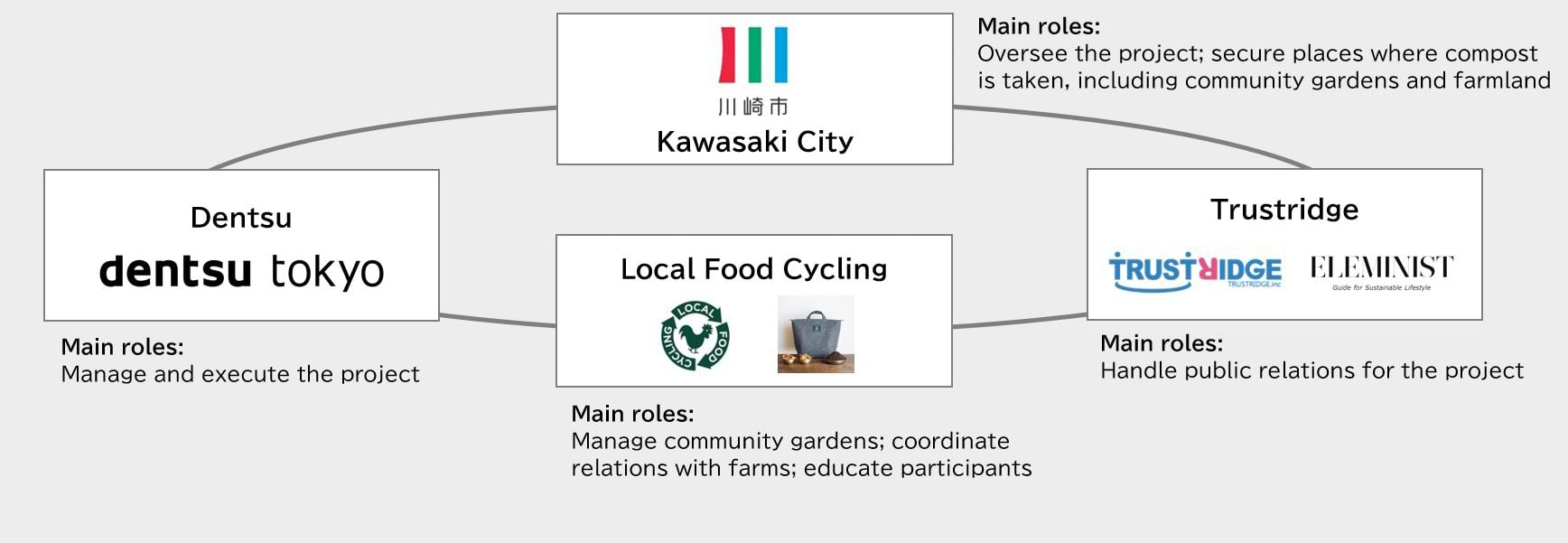
Both the self-supporting and the cooperative food cycles have been realized through Eco-wa-ring Kawasaki.
Self-supporting community garden
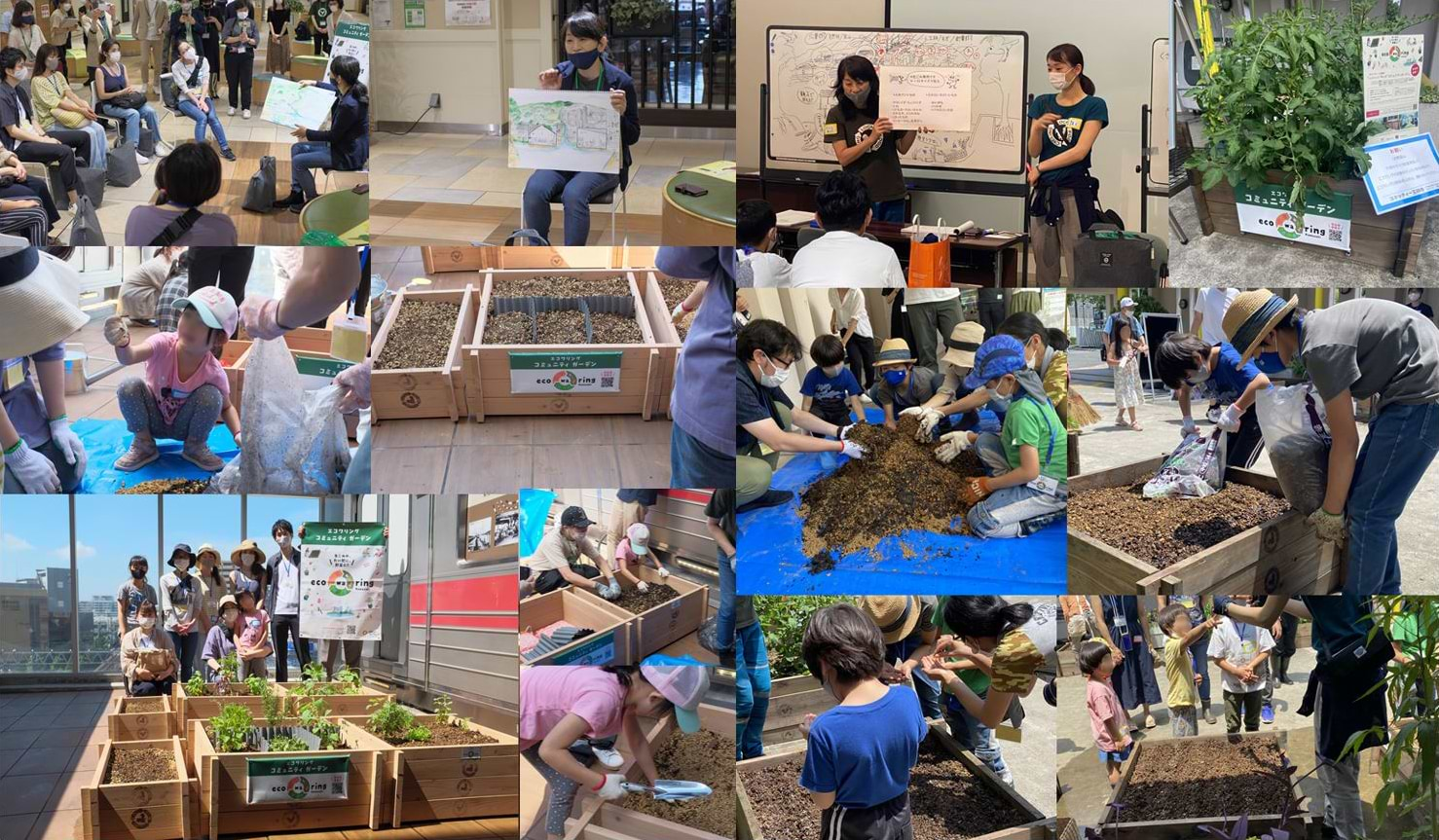
As part of the self-supporting food cycle, events and activities have been organized for the participating city residents who use the compost containers, and companies have provided areas for the community gardens to grow vegetables.
Cooperative community garden
As part of the cooperative food cycle, about 70 residents joined a hands-on event held at a farm. This created an opportunity for them to take part in the Eco-wa-ring project. Participants picked vegetables, learned how to compost, and prepared vegetables for sale. A vegetable market was set up and compost containers were displayed.
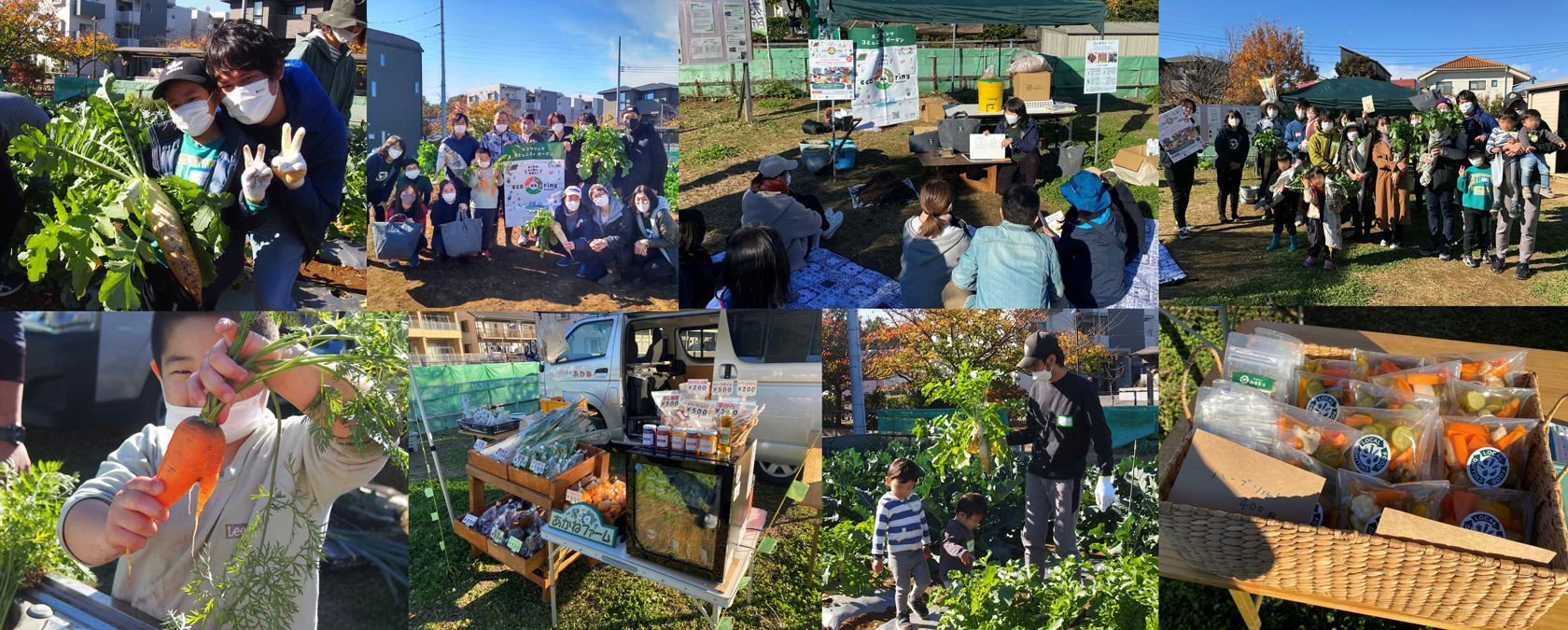
The event also provided a valuable experience for children, who rarely have a chance to visit a farm. Given the delight expressed by participants, we felt that the event served as a small but important step toward realizing the food cycle we seek to achieve through the project.
The project is designed to enable city residents to be involved regularly in environment-related activities. We created an app allowing them to keep a record of when they provide compost for a community garden or farm, and when they participate in a project-related event. As incentives, we set up a system of rewards to reflect contributions.
Community platform
Tracks and rewards individual contributions to encourage continued participation of city residents to in the project.
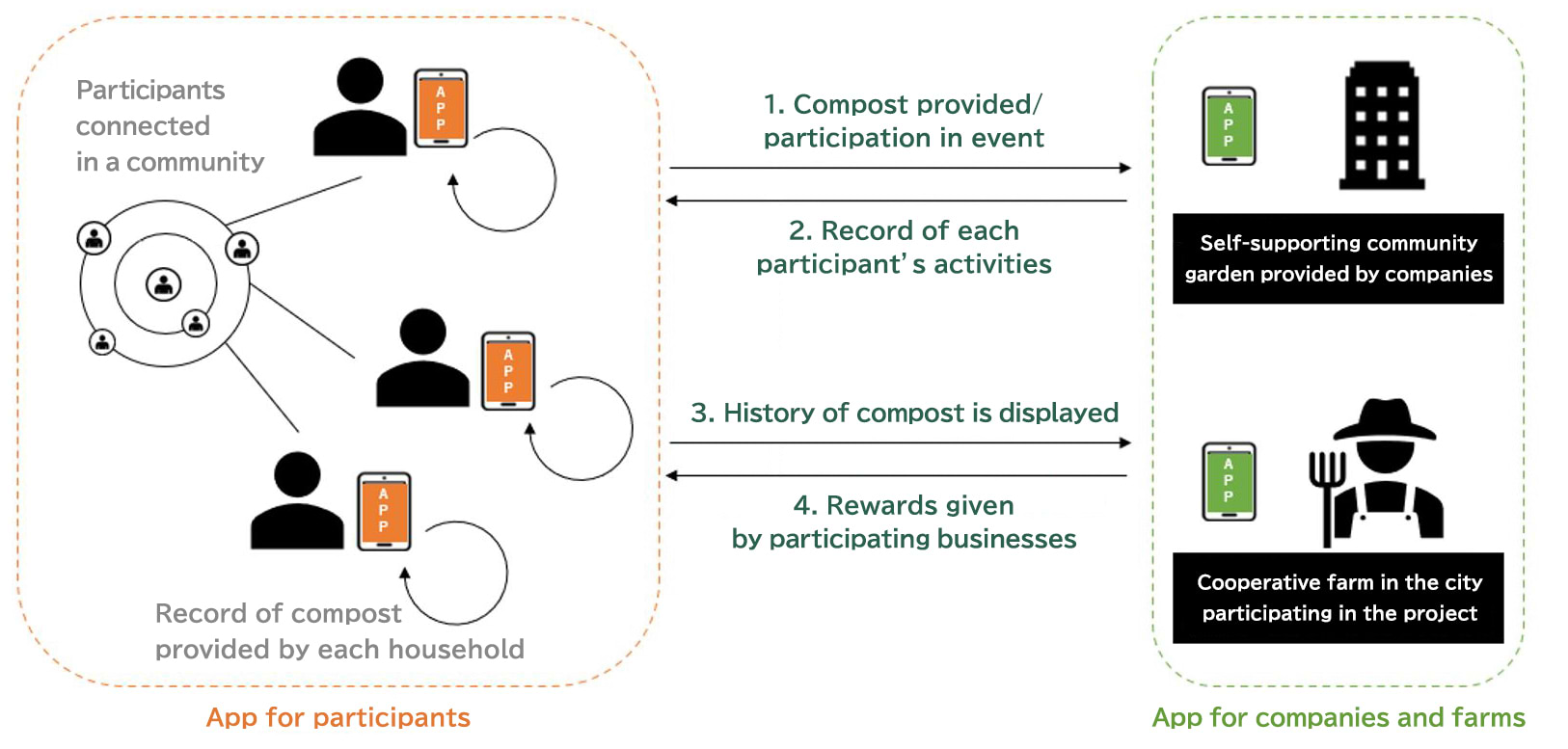
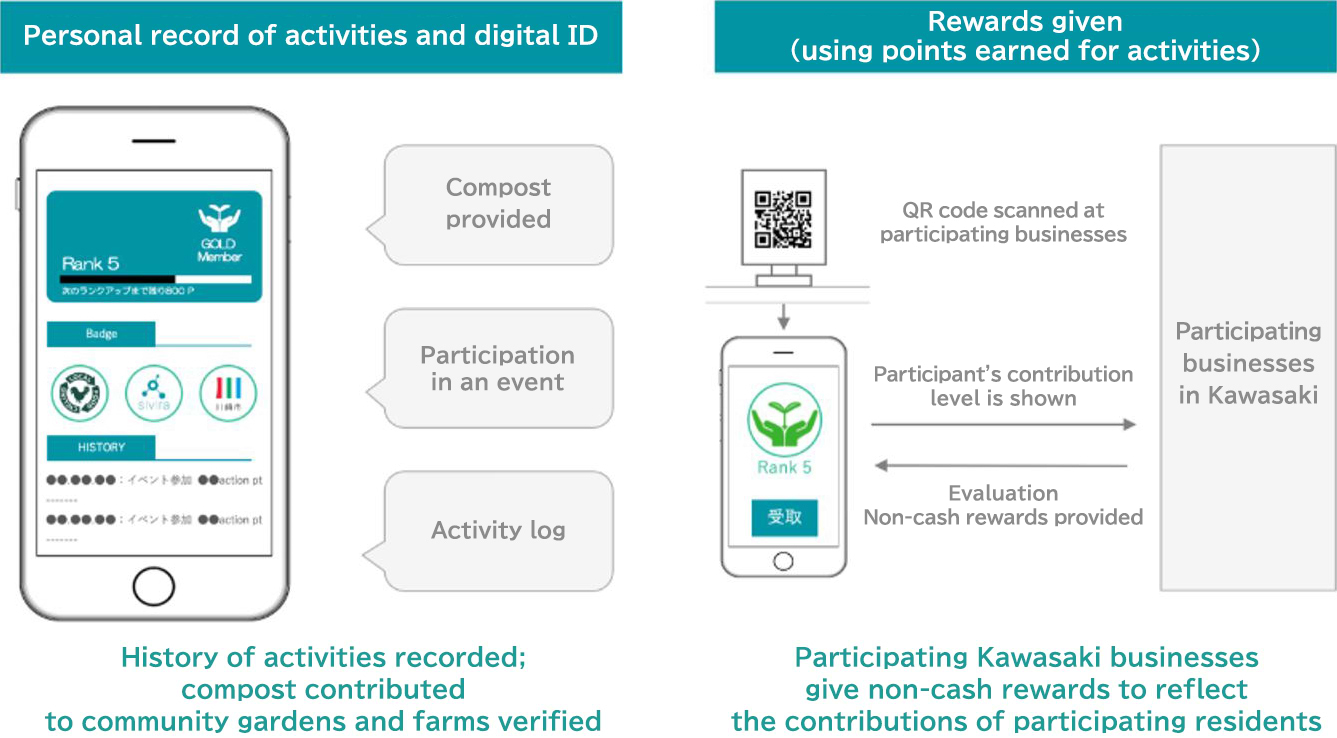
To enable this community platform, Dentsu used its proprietary blockchain and wallet technology. It allows personal information of users to be kept private and inaccessible to the city government and companies involved in the project.
By applying the latest technology and conducting validation tests of the system, we not only want to realize a continuous composting and growing cycle that benefits everyone involved, and rewards consumers for their efforts to make a better global environment.
Platform supports ongoing cooperation
For Dentsu, ensuring that the activities of this project continue into the future is most important, because the more sustainable the activities become, the more broadly they contribute to sustainability.
While engaging in the project, members of several companies told us that efforts to help accomplish the SDGs can be difficult to maintain because the results are not directly observable. Yet, city residents participating in the project have said that they want to continue supporting the food cycles because they enjoy the activities. This indicates the importance of the community platform we have been testing. The validation tests confirm that opportunities for corporate marketing exist, since city residents continue participating in project activities that they enjoy.
Each company involved in the project faced business-related challenges but, by finding ways to help address the issues, we hope to keep them actively involved. Thus, it may even be possible to have community gardens generate revenue for the companies in addition to the rent, as well as to attract visitors to their buildings more frequently.
By making the project more business-friendly, we want to continue its activities and increase the number of participants. Most importantly, we hope to have the project’s food cycles widely adopted in other areas of the country.
Inquiries
Dentsu
Atsuko Kuchiba
https://www.dentsu.co.jp/en/contactus/
